Moe Honan – Producer & CEO, Moetion Films
Moe Honan is the producer and CEO of Moetion Films, which recently developed the animated international box office success Two By Two.
More from...
Tell us about yourself, what got you to where you are today?
I was born in Ennis so I'm a Clare woman, a Banner girl. I went to school there in Coláiste Mhuire, a famous girls’ school across the bridge in Ennis. I always had a huge thirst to get out and challenge myself from quite a young age. I was very happy at home, but I wanted to go and just after my Leaving Cert, I went to Germany for a period of three and a half months, somewhere in deepest Black Forest. When I came back, I went to university in Galway and I absolutely loved it. I loved Galway instantly; I fell in love with it, like many people do. I made very formative friends here and grew up here, in a way, through college and through those years. I actually began a science degree, because I was quite good at those subjects, but once I got into the university life, I realised that was not for me. So I finished that year, did my exams as a sort of good will gesture to my parents who had so kindly supported me, and then I started once again in college in Arts, and I studied English Literature.
I didn't look back then, in terms of feeling fulfilled and happy in what I do. As I mentioned, I studied German as part of my degree, so that brought me back a lot to Germany. I spent another year there, and I lived in Vienna for another year, so I always had a great need, I think, and a thirst for travel and learning other things. I always got drawn back to Ireland, though. Roughly around that time, my dad passed away very suddenly and so I came back and made the decision to start working at whatever I could. It was a period where getting work was difficult; most of my peers were emigrating. However, I started working teaching part-time, I taught German for a while in what is now GMIT. At that point, I realised that I very much wanted to work in some creative area or some media area, so I dipped my toes into media through arts journalism in Galway Bay FM. I collated and read the news part-time when people were on holidays and did some ad hoc reports on the arts scene. I developed my interest there, really. Then I began working in video production and in post-production facilities - directing and in the production side as well. I developed my skills around what was a growing industry at the time, and that was under the influence of Michael D, who was very much innovating all of that in the West. Out of that, I worked in documentary-making for some time with Justin McCarthy. We used to work on down time hours in Telegael till all hours at night, collating archive material - war documentaries that were made for the History Channel. So I was constantly learning and enjoying more about what I was doing. I also worked freelance on location and production. I then started to work with Magma Films, who were based here for almost 13 years. I was there as an employee and in that time, I worked on a variety of programmes. I began in live action, but I slowly gravitated towards the animation side of the house, and that seemed to really be where I was most comfortable, I think.
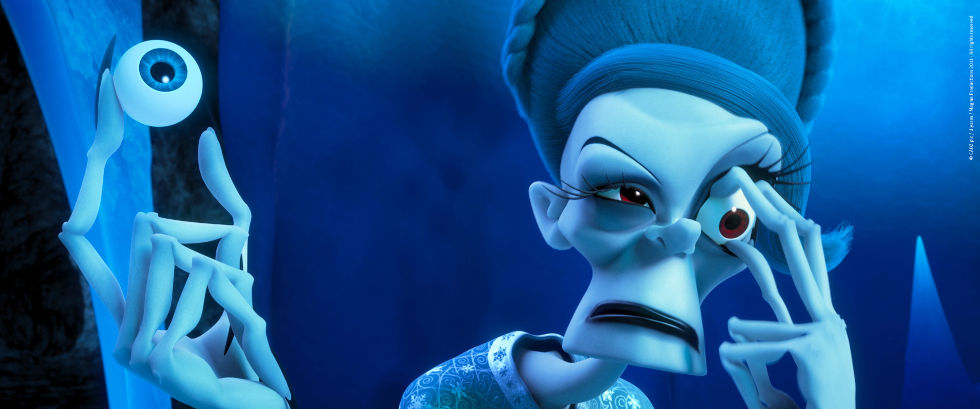
What was it about animation that drew you in?
I had gained studio skills, so for a practical reason, I was drawn to it. I loved working with sound and voice. I began voice directing and working with the actors, and voice directing is such an important part of the animation process. It starts from script, so it's a very creative thing; it's like doing a radio play. But I think what really drew me in in the end was I felt that it was a much more collaborative process than what I was experiencing in live action, which can tend to be a very rewarding process, but very intense and over quickly. With animation, you really have to commit to it for a long time, so it's very important that you gather your team carefully, you build relationships with people, you mind those relationships, and you work closely with people for quite a long time. I think that pace of doing things and nurturing something to fruition just suited my temperament a bit better.
From Magma, you decided to go out on your own?
Magma came to a natural end in 2011. It had, at the time, quite a few employees and unfortunately, we all lost our jobs, but we've all been gainfully employed. We had actually grown up in the company and learned a lot, learned a lot of skills and done a lot of projects over the years, so we all moved on into different areas. I worked freelance for a period after that and completed two feature film projects I was already involved in with other European partners in Germany, Denmark, Iceland, a lot of the Nordic countries. Then two years ago, I came to a point where I felt it was really high time to start my own company, because I had projects in development and I felt I had learned enough over the years to do it on my own and to use the networks and contacts I'd built up over the years.
Did you find it scary, going out on your own, even though you had all this knowledge and your contacts?
I found it very challenging, in the sense that you very much know the buck stops with you completely. I think as a producer, you learn those skills anyway in your projects, but having the corporate buck stop with you in addition to that, for a company and for employees, of course is an extra challenge. While you would have managed it and learned it inside a project, you now have to apply it to your own company, so from that point of view, I was apprehensive, but I was very determined at the time. I felt the time was absolutely right, and also I was lucky and it felt right that I had a project already developed.
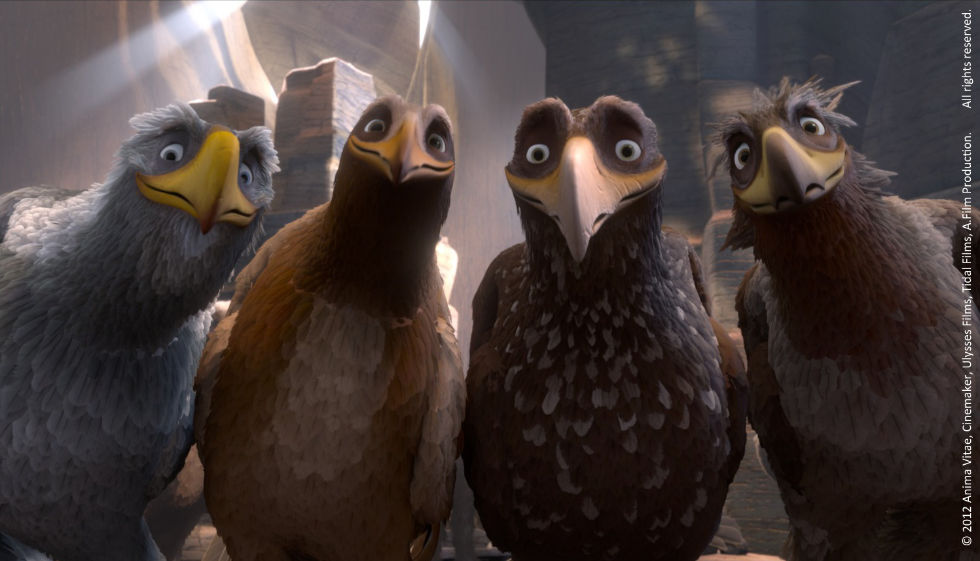
So it's been a big success...
It's been fantastic. It's a project that I've been involved with for a long time developing and to finally get it into production with the partners across Europe was a tremendous achievement for everybody. We loved this project from the very outset, so I think everyone just maintained a really high level of value and production value in it the whole way. We were involved here in Ireland from the very beginning. It was developed in Galway, we had writers working on it here in Ireland. I, myself, did the casting and voice recording for it. Once I had my company open, I had my animation team here and we shared this work with Germany and Luxembourg. In a European co-production, you're co-financing, you're producing, so you split the work up according to your financing and according to the skills base and whatever makes the best creative sense. The orchestra was also in Ireland - the RTE Symphony Orchestra, all the sound production was done in Ardmore sound, and so from the very development, from the very early days to the delivery, Ireland had a very significant role to play in the production of the film. So, yes, it's been really successful for us. It's sold out worldwide and it's done tremendously well in terms of the audience responses. It had a very good run in UK and Ireland, which thrilled us because in the projects that I've been involved in previously, we were always a little jealous of our neighbours having nice theatrical releases and getting the audience feedback that you want for a film and seeing families really enjoying it. The distribution and theatrical independent distribution is much trickier in the English-speaking countries for the family animation entertainment, so we finally got a break with this one. E1 bought it at the American Film Market at the beginning of 2015 and did a tremendous job marketing and releasing it into the UK, Ireland and other English-speaking territories, but it did particularly well in UK and Ireland and that was a great achievement for everyone involved. It’s also really good for the industry, because it shows people that it's doable in the independent sector. Naturally, with that type of family entertainment, we're competing with Pixar, we're competing with Disney, and we know they are the best in the world at what they do, but obviously they have much bigger budgets to push the machine of what they do. So to achieve success in box office, get a good long run in the cinemas and have audiences respond in the way that they did was the cherry on the cake for us really, because that's what you work for. Apart from trying to make a living, I get great reward out of getting something up and running and being able to employ people. I really like creativing the job side of it for people as well, but having the feedback and the audience getting to see what you've done and also respond the way they did is fantastic.
Which feeds into my question, what is the drive behind what you do?
I'm not entirely sure what that is; I still reflect on it a lot, trying to figure out what makes people do this particular type of job. Like I say, I do like creating content with people, I like storytelling, I like the idea that if you bring together the right people, you can create something original. I think the producer side of it is something I just grew into. I come from the more creative side, but I grew into the producer role. I think that's got more to do with the fact that someone has to do it, someone has to take responsibility and own it and deliver it. I think producers really need to know that's what they're signing up for, because there are days when you wonder why you do it, because you've got to take responsibility for every element. Some days, it's great fun and some days, it's really tough. You have to be very resilient and know that you'll get past the obstacles. You have to not take ‘no’ for an answer, at times, and just push it through. That's an individual thing; I don't know fully how to explain that, but I think you have to have a determination to make something work.
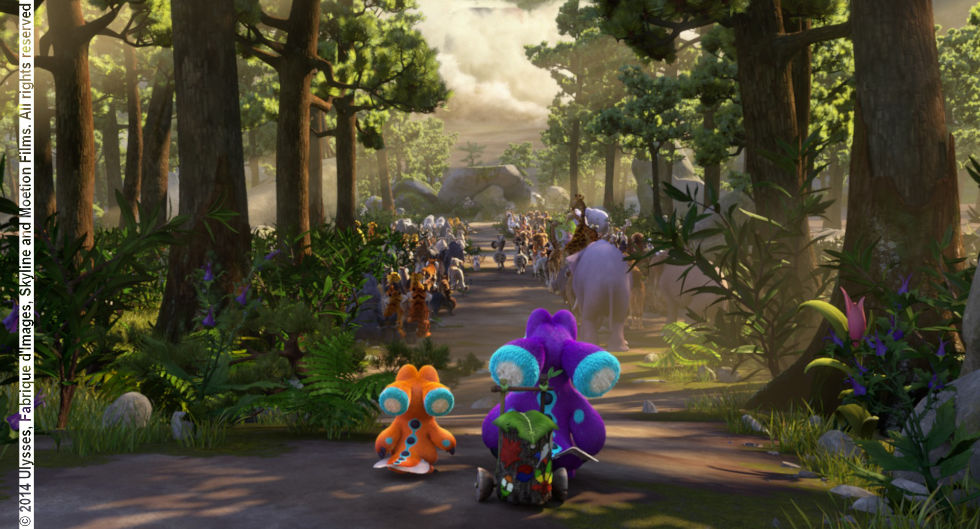
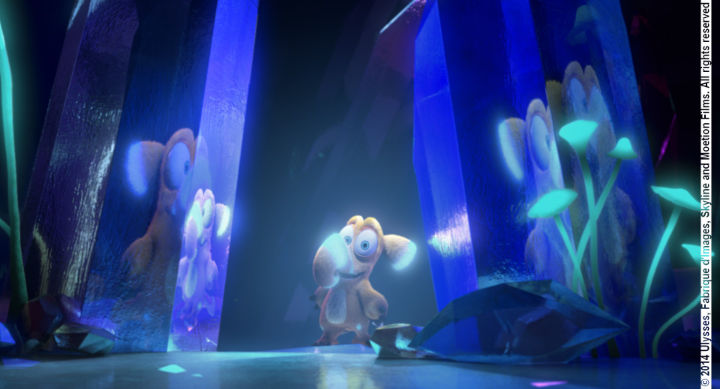
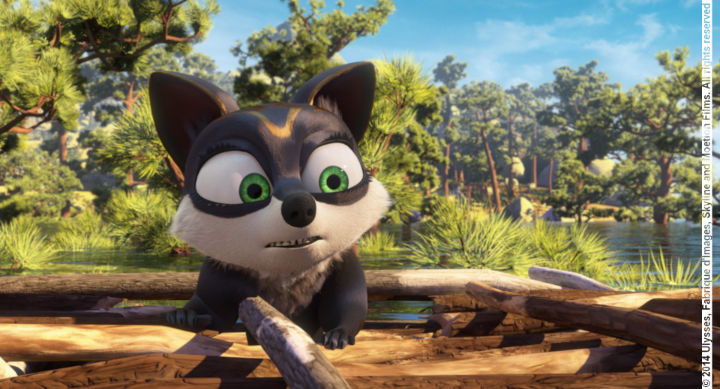
Achievement-wise, what would you be most proud of?
I think it's going to have to be Two By Two, because it's through my own efforts out of Galway here, with my own small company and growing that, so I think that's an extra thing and it's taken an extra layer of energy and resilience out of me to do that. Having done that and having had a successful feature through it already feels like the biggest achievement professionally. There's been others through the years that I've been very proud of that we've produced out of Galway as well, but creating an entity that also creates employment for others, I really feel that that's an achievement. I personally get a thrill out of it when there's work to be created for others.
You do a lot of the writing still...
Yes, we develop the content in-house and I attach writers. I sometimes would develop with a writer. I also get projects sent to me from different people, also abroad, who look to Ireland. Given the success we've developed here as storytellers, I think we have a huge advantage here because we have a psyche of storytelling, a historical heritage of it. We’re English speaking, on the edge of Europe, between mainland Europe and America, and a lot of Europeans do look to us for this. I don't know sometimes if we're fully aware of it, but we have a lot to offer them in terms of our writing skills. We need to mind it, we need to bring on new young talent and new writers and make sure we look after that part of our heritage. I think the writing and script development is so important, but the other skills have really come on. If you look at the last ten to 15 years, the growth in the animation industry is phenomenal. Ireland is really one of the top countries. When you go to the markets, everybody is watching what we're doing now. We've distributed our projects all over the world from various animation companies around Ireland and they're involving people from writing to post production, so there's quite a breath of skills that are being used. The animation itself, as in the animation skills we need and the technical skills we need around that, are the ones that are still evolving and catching up. Especially on the tech side, it can be challenging sometimes to find the right skillset, but I do think that's changing. I think there's an awareness at every level now in education and training. People are beginning to address that more and look at the needs of people choosing that as a career. There’s learning the art side, but of course they have to work in an industry then, and I think that's an area where we're still learning how to bring people into the industry successfully.
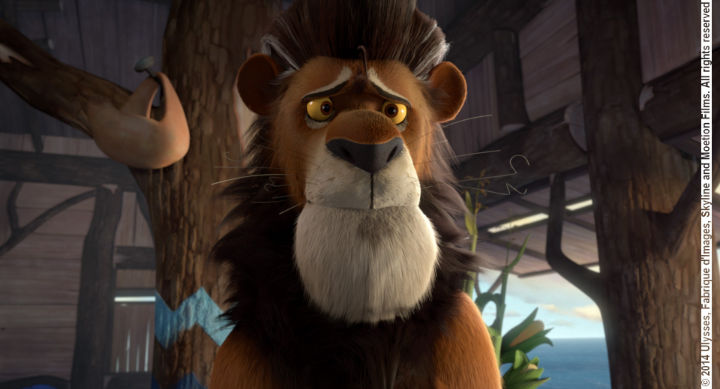
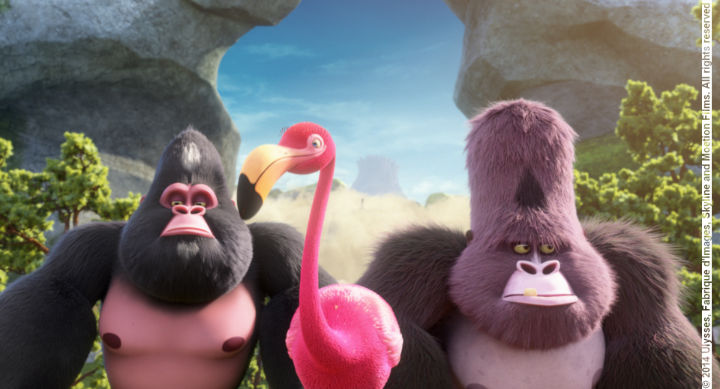
What's next?
Moetion Films is developing a slate of projects now; we'll be concentrating on that over the next couple of years. We are actively developing a TV series from Two By Two. Development work is long and hard and it's going to take investment as well - but that's one arm of the company. The other one that I'm building and strengthening and we're more active in is service work. One of the things I do personally is voice direct, so I have clients in different parts of Europe, particularly, where I cast and voice direct their own projects into English for the international market. We also do other production services for animation-seeking people, but I think on balance, if you have a small company that you're trying to keep lean and stable and grow in a safe way, you have to have both going on and you have to have your own projects, your own IP development, but some service work as well to cash flow it.
You seem to have that balance of a creative and business head...
I always feel like I'm always learning. I never feel like I'm an expert in any area and I think that always keeps me open to learning and listening and watching. I'm also quite a reflective person and by choice, even though I love socialising, I also have to withdraw. I can be quite an introvert - a happy introvert. But I think that allows me time to make decisions reasonably carefully. I actually go from my own instinct a lot with people as well. I think some people think business is like a mathematical equation, that you can somehow box it into this way of doing things, but it's not, it actually also demands quite a lot of creativity - in the way you think, in the way you make decisions. And you need to know people, you need to be able to rely on people and build trust. I'm not sure that people always associate that when they think of business. They think of more economic decisions. You base those decisions on people's abilities and skills, but you also base them on whether you can trust them or not. So that’s a big part of the way I approach what I do, both creatively and in the business side, so maybe it's all one thing.
Describe Yourself
I do think I'm a calm person - at least people say that to me. I do worry about stuff and I do get apprehensive at times like anybody, and I can be fearful of my next move, but I tend to be able to manage anxiety and stress reasonably well. I self-manage that and maybe that is something also to do with the fact that I very much need my own company at times; I need to be on my own or go off and walk or read or be by myself to regroup. I find sometimes if I'm over-crowded with big groups, or a lot of activity with people, I feel I need to withdraw. Maybe that's my own little barometer and maybe that's what keeps me reasonably calm most of the time, even when things are challenging. I also love socialising; I love people and I love my arts and my music and all that. I love the sea - that's one reason I stay in Galway.
Along the way, who have been your major influencers of mentors?
I come from quite a small family. When I think about that, I automatically think of my own mum and dad and my sister. We’re a small unit, so they would have had a large influence on me personally and in terms of supporting me and guiding me. My former partner, Neil (Neil McLauchlan), who passed away in 2011, was always a great personal, but also professional support to me as he worked in the industry as an editor and always encouraged me to follow my dreams and my goal to start my own company, which I did in 2013.
In a professional sense, some of the people I've worked with across Europe have had a big influence on me. I would have had a lot of good guidance from them. In particular in recent years, I’d like to mention Siún Ní Raghallaigh, who is the CEO of Ardmore Studios and also lives in Galway. Siún is a director in my company, and I do work with her in a consultative way as an executive producer. She's a tremendous person and has professionally and personally been very supportive to me in recent years.
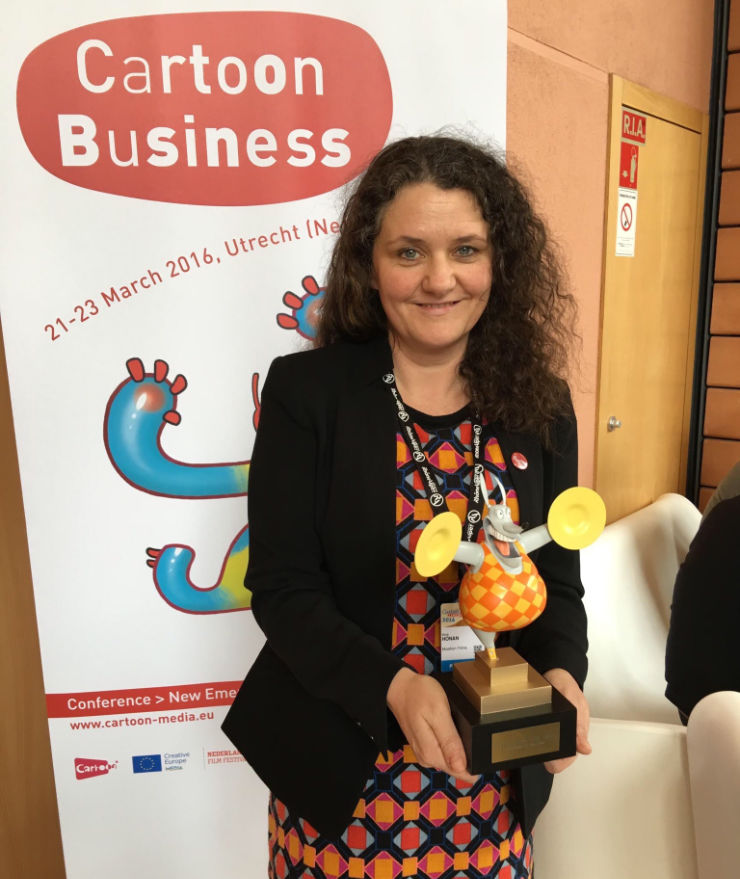
Why would you choose Galway to live and work in?
That's a very good question, and I think it would have been more difficult to answer just a few years ago, because it’s like you had to justify staying here. Personally, I would have chosen to stay here for quality of life reasons. Professionally, there's always been a great community feel of the way people work together here, which is maybe more difficult to achieve in a bigger place. However, resources, infrastructure, availability of people - all those things would naturally mitigate against you living and continuing to thrive professionally in a place this size. But, I think one of the game changers and the reason it’s even more attractive to be somewhere like Galway now is technology. Technology has made it possible for all of us to work from our bedrooms, if we wish, (hopefully we don't all do that), but it's really made it possible for everyone to be communicative where geography doesn't matter as much. That's right across everything we do, from the writers to the end product. You still have a need, and I believe in it, to bring people together in a space where they have interpersonal contact. It's vital, in terms of team building and sharing and learning. From another point of view, we have worked with directors and co-directors across four different counties in Europe on a production and we're just literally skyping into each other whenever we need to. Obviously it's organised, but then if there's an ad hoc need to do that, we will do that as well. We're sharing digital files across project management tools and everything is transferable, uploadable, downloadable. So in some ways, it doesn't hugely matter that we're not in a bigger place.
What do you think could make Galway a better city and county, for the people that work here, for the people that live here?
Carrying on from the tech side, I do think we need a better, more expansive, broadband system. We need everybody to have that. It needs to be rock solid and it needs to be available to everybody in order for everybody to participate fully, from training, from school - right through. With the infrastructure in Galway, I think everybody knows that it needs to develop now. We do need to find a way that we can get to and around what is a reasonably small city, faster, so that we can also bring in the people we're working with across Europe and across the world in an easier way. We're almost there, even if we're looking at Shannon as our entry point, but we need to collaborate with that. I do think that the West of Ireland and the rest of Ireland needs to unite and collaborate on those things, when we have a very Dublin-centric development, centralised way of doing our policy. Rather than trying to gain everything for one place, the more we strengthen the West of Ireland, the more Galway will naturally benefit, because it's seen as the capital of the West for many reasons.
- Máiréad Ní Chróinín - Previous
- Next - Patricia Forde